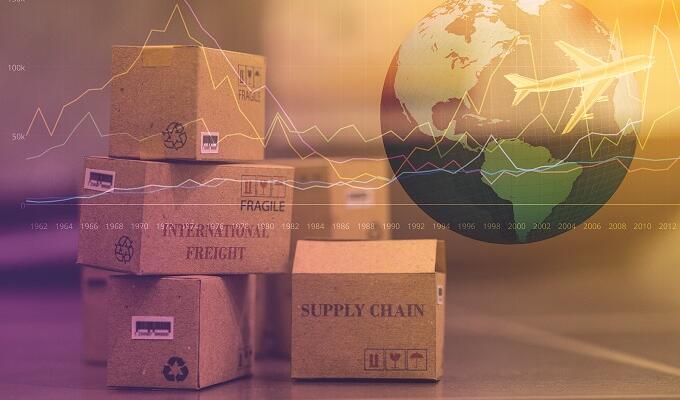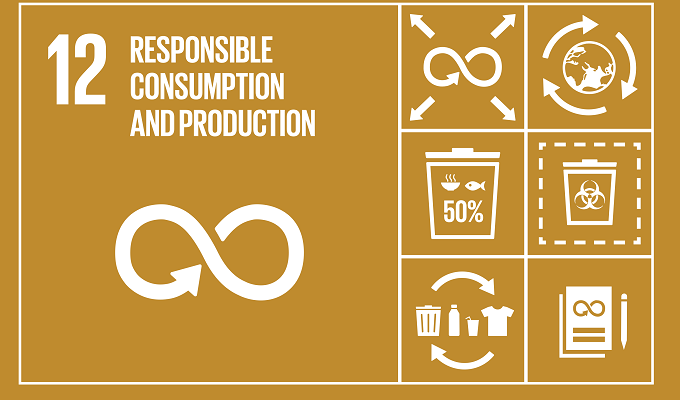

How sustainability standards contribute to SDG 12
Business as usual is not an option anymore, neither in the medium or long-term, to achieve the Sustainable Development Goals by 2030
As economic growth accelerates, unsustainable consumption and production patterns exacerbate inequality and natural resource depletion. Business as usual is not an option anymore, neither in the medium or long-term, to achieve the Sustainable Development Goals by 2030. The time has come to urgently transition to an inclusive green economy, an economic model that focuses on resource efficiency and the sustainable management of ecosystems as a building block.
Environment degradation undermines long-term economic growth and human development. SDG 12 on responsible consumption and production, the cornerstone of the green economy concept, aims at doing more and better with less by suggesting breaking the vicious cycle of resource use and waste generation. It is relevant for all countries, both developed and developing.
The transition to an inclusive green economy entails joint efforts in stimulating sustainable lifestyles, scaling up sustainable consumption and production (SCP) and encouraging environmental entrepreneurship. Through the advancement of eco-innovations, the facilitation of resource efficiency, and the mainstreaming of conscious consumer behaviour, new jobs are expected to be created in the renewable energy and recycling sectors, among others, without compromising existing employment. A significant reduction of carbon emissions, waste and other forms of pollution can also be achieved.
Businesses, governments and consumers are central players in driving these changes.
Demand for improved information and communication on product sustainability, sustainable public procurement practices and new products and services with lower environmental impact are some examples of how consumers, governments and companies are acting in this area.
Businesses play a pivotal role in society’s shift towards SCP. On one hand they are consumers of products, commodities or natural resources overall, while on the other they set rules, standards and practices at market level. Voluntary sustainability standards can be effective tools for achieving environmental objectives and strengthening demand for sustainable products. These can also be supplemented by eco-labelling and certification schemes. This means that in addition to the standard, information is provided to the buyer indicating the product’s environmental impact.
However, businesses are often confounded by the complexity of the sustainability landscape. The proliferation of regulations, standards, codes of conduct and similar initiatives creates challenges for global value chain actors, particularly micro, small and medium-sized enterprises (MSMEs) in developing countries. Complex standards can risk discriminating against MSMEs, which often lack adequate technical and financial resources to comply with them and demonstrate their compliance. Moreover, the sheer number of standards can generate confusion among MSMEs and producers while increasing implementation costs and becoming de facto non-tariff measures.
Product sustainability information makes data about the product, service or facility available to different users. This information can take many forms, including labels or logos, written claims or declarations, corporate reporting, or rating schemes. It can be mandatory or voluntary, life-cycle based, multi-sectoral or apply to a single sector.
Product sustainability information is useful for a wide range of stakeholders.
Governments take it into account when developing, measuring and monitoring policies. Businesses can use it to manage supply chains and adopt best practices, while final consumers can base purchasing choices on this information.
With the growth of markets for sustainable products, consumers are faced with an increasing volume of information on product sustainability, which may be imprecise or confusing and therefore mislead their choices. Diverging or unchecked product sustainability information can affect the reputation of credible standards, labels and claims while resulting in mistrust and confusion among consumers, business and government.
As a response to the increasing complexity of the sustainability landscape for businesses, the International Trade Centre’s (ITC) Trade for Sustainable Development Programme (T4SD) has developed the Sustainability Map (www.sustainabilitymap.org) to enable users, regardless of their position in the value chain, to better understand the sustainability initiatives and to connect with business partners.
In Colombia, for example, T4SD, Swisscontact and the National Cocoa Network (Red Cacaotera) have been supporting cocoa producers in understanding and complying with international sustainability standards in the sector and ultimately with connecting to potential buyers. By learning how to comply with international voluntary sustainability standards through an online tool developed by ITC and adopting more sustainable business practices, Colombian producers are a step closer to tapping into international markets.
This project, funded by the Swiss Secretariat for Economic Development (SECO), makes use of Sustainability Map to enable direct linkages between cocoa producers from Colombia and potential international buyers. As a direct result of the project, Colombian producers were connected with Swiss and additional international buyers willing to pay a premium for sustainable cocoa. This is a good example of how local businesses can engage in sustainable consumption and production worldwide.
On the other hand, effective sustainability claims on products empower consumers, enabling them to make more informed sustainable choices. One response to this is the Guidelines for Providing Product Sustainability Information jointly produced by UN Environment, the UN 10YFP Consumer Information Programme and ITC. These guidelines are applicable to all regions and company sizes. Collaborations for knowledge exchange are also crucial for enabling the creation of business models aligned with the SDGs.
One example on how to raise awareness about how purchasing decisions can affect the environment and livelihoods of people in other countries is the EU Cities for Fair and Ethical Trade Award, launched by the European Commission and its Directorate-General for Trade (DG Trade) in partnership with ITC . The award aims to recognize and celebrate cities’ achievements and positive impact in the areas of social, economic and environmental sustainability in international trade.
Guidance and transparency on voluntary sustainability standards are key to enable all value chains actors, from farmers in the developing world and intermediate processors and traders to ultimate buyers such as retailers and brands, to harness the opportunities from the adoption of VSS. Informed decisions need to be made given the context of increased complexity and proliferation of sustainability standards.
SDG 12 occupies a pivotal position within the SDG landscape. It sits as a balance between achieving the social goals (those aimed at greater consumption and therefore worsening environmental impacts) and achieving the environmental goals (those focused on transformation, which demand, amongst many other actions, a dramatic reduction in consumption of natural resources).
Voluntary sustainability standards can offer a roadmap for sustainable production and consumption. Providing more transparency and support for understanding this roadmap, and thus fostering collaboration for SDG 12 implementation, is it at the core of T4SD’s mission.



